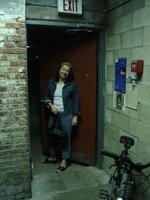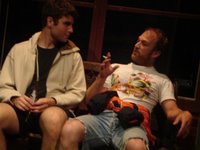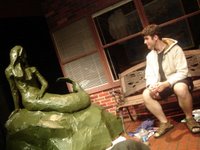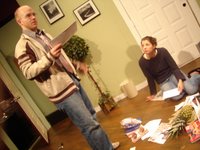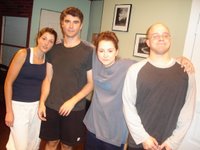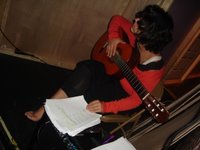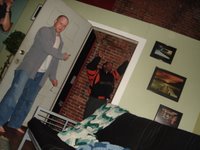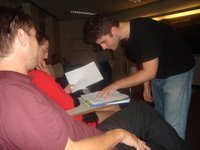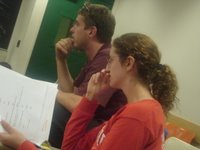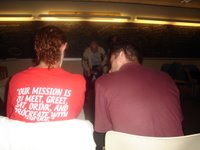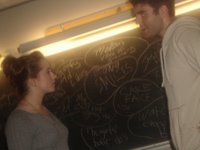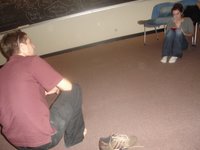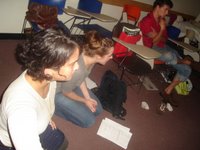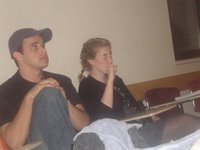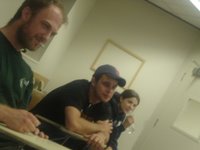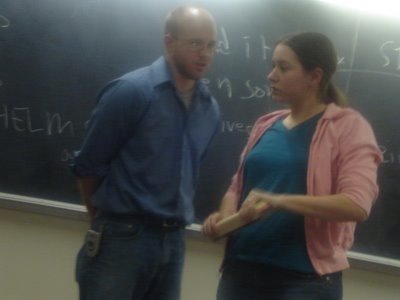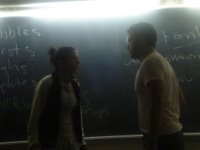
Tuttle asked me to write the dramaturg notes for the program, paying attention to the fact that the program's purpose is to bring the audience into the world. So I set out this weekend to compile a piece, not too long, not too brief, that would succeed to set the tone.
Seeking a little inspiration to pen it, I listened to Henry Rollins writings online. (Click on the image then scroll to the sound samples if you'd like to give a listen too.) Tuttle had mentioned his "Black Coffee Blues" and so I knew it shared elements with the the tone of the play. Indeed it does. Invisible Woman Blues struck a clear chord so I decided to quote it in the notes.
Dramaturg's notes that I've seen are typically musings on the play, its world, its characters, its origins, etc. A third person objective take on the production and the process leading up to it. Tuttle's request was out of the norm as far as I knew from what little I've surmised. Wasn't I meant to provide a standard dramaturgical breakdown of the play? No actually, I thought. Because really, when the director is the playwright and the play is his final draft, the need for a dramaturg in the traditional sense is diminished. Right? I mean, certainly the next 11:11 production, The Tempest, would benefit far more from a dramaturg than The Unnoticed, correct? Then it hit me. This is what makes dramaturgy so cool and even cooler exploring it as a first go with 11:11.
This experience is anything but standard, cookie cutter, traditional. It's fluid, vastly diversified, full of possibility, and therefore potentially ever-changing. So it made sense that I wouldn't follow any particular academic formula when it came to the program notes. They would simply serve as an extension of the work so far: to be a partner to the play and the process, facilitating thought, encouraging discourse, offering imagery, and compiling the discussions from the rehearsal process. Tuttle's thought about a list of ordinary things peppered with extraordinary events sat well, and I built upon this concept to bring moments from rehearsals into the notes.
Here they are ...
Dramaturg’s notes"People travel to wonder
at the height of mountains,
at the huge waves of the sea,
at the long courses of rivers,
at the vast compass of the ocean,
at the circular motion of the stars
and they pass by themselves
without wondering."
–Augustine (354–430 A.D.)
How do we pass by ourselves without wondering? Without noticing? What other seemingly simple elements of life go unnoticed?
A girl sketches a portrait in the Sargent Gallery.
An old man waits for the T.
A homeless woman asks you for change.
A boy chases a squirrel around a tree in the Public Garden.
Several dozen people spot a manatee in the Hudson River a thousand miles from its natural habitat.
Your cell phone rings.
The garbage truck makes its biweekly rounds.
A car alarm sounds.
You hit snooze for the third time.
The Globe gets delivered.
A Tucson man lifts a car to save a boy pinned underneath.
The smell of leaves burning lingers into your living room.
A weatherman forecasts partly sunny skies with a chance of rain.
A thunderstorm hits.
The airport experiences delays.
You put a load of laundry in the dryer.
The dentist’s office leaves a message about your next cleaning.
An albatross feather blows in through your window.
Recurring ingredients came to mind in discovering the world of The Unnoticed. Not necessarily in the play, these ideas and images held a place for however brief moments in the evolution of the characters and their relationships through rehearsals ...
Urban anonymity, foreign world, explosions from nowhere, water overflowing, Jay’s anger, kites flying, imagination, possibility, Erin breaking, untouched, strange, Marie’s stillness, sight felt, distance sensed, using light like it was water, Jeff’s presence, a blue that brings tears, ambulance sirens, a dog barking, candles and marshmallows, Thomas’ passiveness, singing beach, doors closing, dial tones, oceans opening up, being reborn with all of the knowledge and none of the scars, come sit on our wall ... welcome.
"Before I fall asleep at night
I close my eyes
and wrap myself around you
I can feel your breath on my neck
In my mind it’s real
you’re real
Just writing about it
makes me stare at the wall
for minutes at a time
like I’m in a trance.”
– excerpt from Invisible Woman Blues by Henry Rollins
Julie Levene, The Unnoticed Dramaturg
